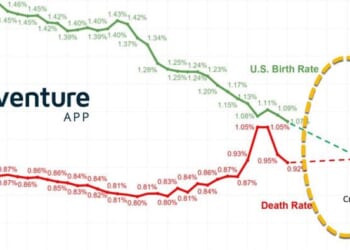Carvana shares are down almost 10% this morning even as the online used-car retailer delivered another quarter of impressive looking headline results, highlighting growing skepticism that its financial rebound may be outpacing the realities of a shaky auto market.
Revenue jumped to $5.65 billion from $3.66 billion a year earlier, powered by a 44% increase in retail units sold to 155,941, according to Bloomberg. Net income rose to $263 million, or $1.03 per share, compared with $148 million, or 64 cents, a year ago. Adjusted earnings hit $1.50 per share, well ahead of expectations, while adjusted EBITDA climbed to $637 million. The company projected fourth-quarter retail unit sales above 150,000 vehicles.
CEO Ernie Garcia celebrated the scale of the recovery, telling shareholders: “Not only is this growth happening at the same time we are producing margins higher than have ever been reported by any other automotive retailer, but it is also happening at a very significant scale.”
It’s a claim the market now seems to be skeptical of.
Beneath that demand, the auto sector is showing cracks. A major parts supplier (First Brands) and a subprime auto lender (Tricolor) recently failed, while delinquencies on auto loans — particularly among younger buyers — are rising fast. Auto loan delinquencies in 2025 have surged to historic levels, driven by higher vehicle prices, interest rates, and overall affordability issues for consumers.
Analysts warn that lower-income consumers are under growing strain. “There has been nothing but bad news recently on the auto sector when it comes to the low-end consumer,” Matt Maley, chief market strategist at Miller Tabak, told Bloomberg
Carvana’s soaring valuation has also drawn scrutiny. The stock has jumped 78% this year and trades at roughly 53 times earnings, a multiple more in line with Silicon Valley high-flyers than with traditional auto dealers. That leaves little room for disappointment. “Any stumble in guidance, and momentum traders could hit reverse just as fast as they hit the gas,” said Dave Mazza, chief executive of Roundhill Financial.
On top of that, short sellers have accused the company in recent years of aggressive accounting, cutting corners on title transfers, and relying on financing practices that could backfire in a downturn. While the company has denied wrongdoing and tightened procedures, critics argue the rapid expansion masked deeper structural risks.
Other controversy has followed Carvana since its pandemic-era surge. After becoming a meme-stock favorite, shares crashed 98% in 2022 when losses mounted and debt worries ballooned. The current rebound has been fueled by cost-cutting, slower inventory growth, and a massive debt restructuring — moves that bought time but did not erase long-term questions about sustainability.
Meanwhile, the company’s CEO and his father have sold billions of dollars in Carvana stock.
The company’s pitch is that online scale and logistics efficiency can eventually outclass brick-and-mortar rivals such as CarMax and Lithia Motors. Yet critics argue the business remains capital-intensive — requiring costly facilities, fleets, and reconditioning centers — despite its tech-driven image. As Karobaar Capital’s Haris Khurshid put it: “It’s basically a capital intensive retailer wearing a tech premium.”
Loading recommendations…


















